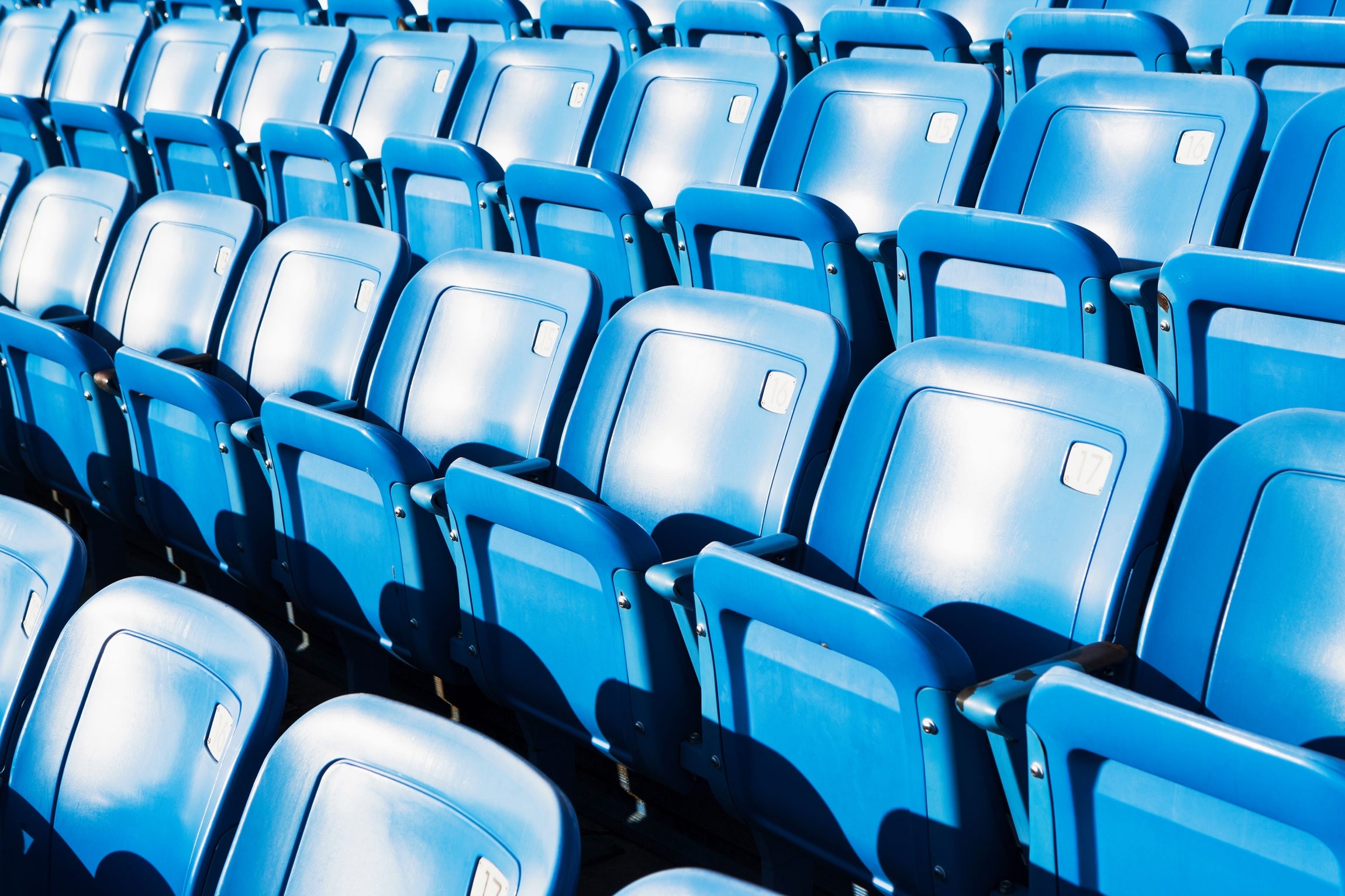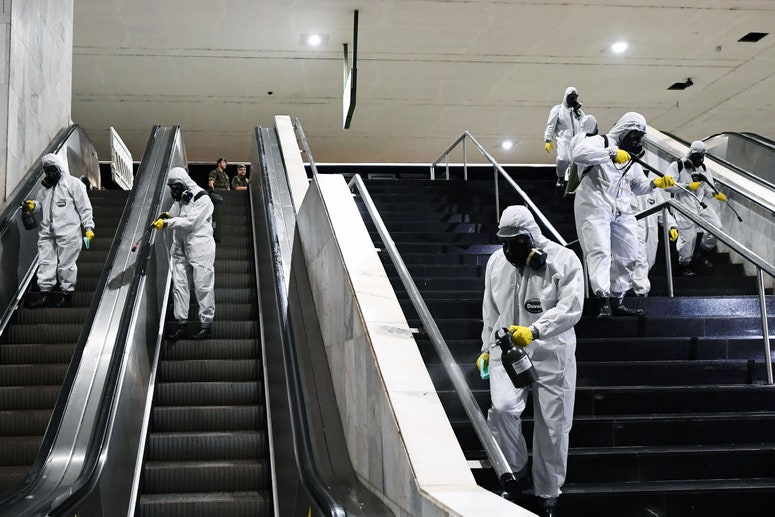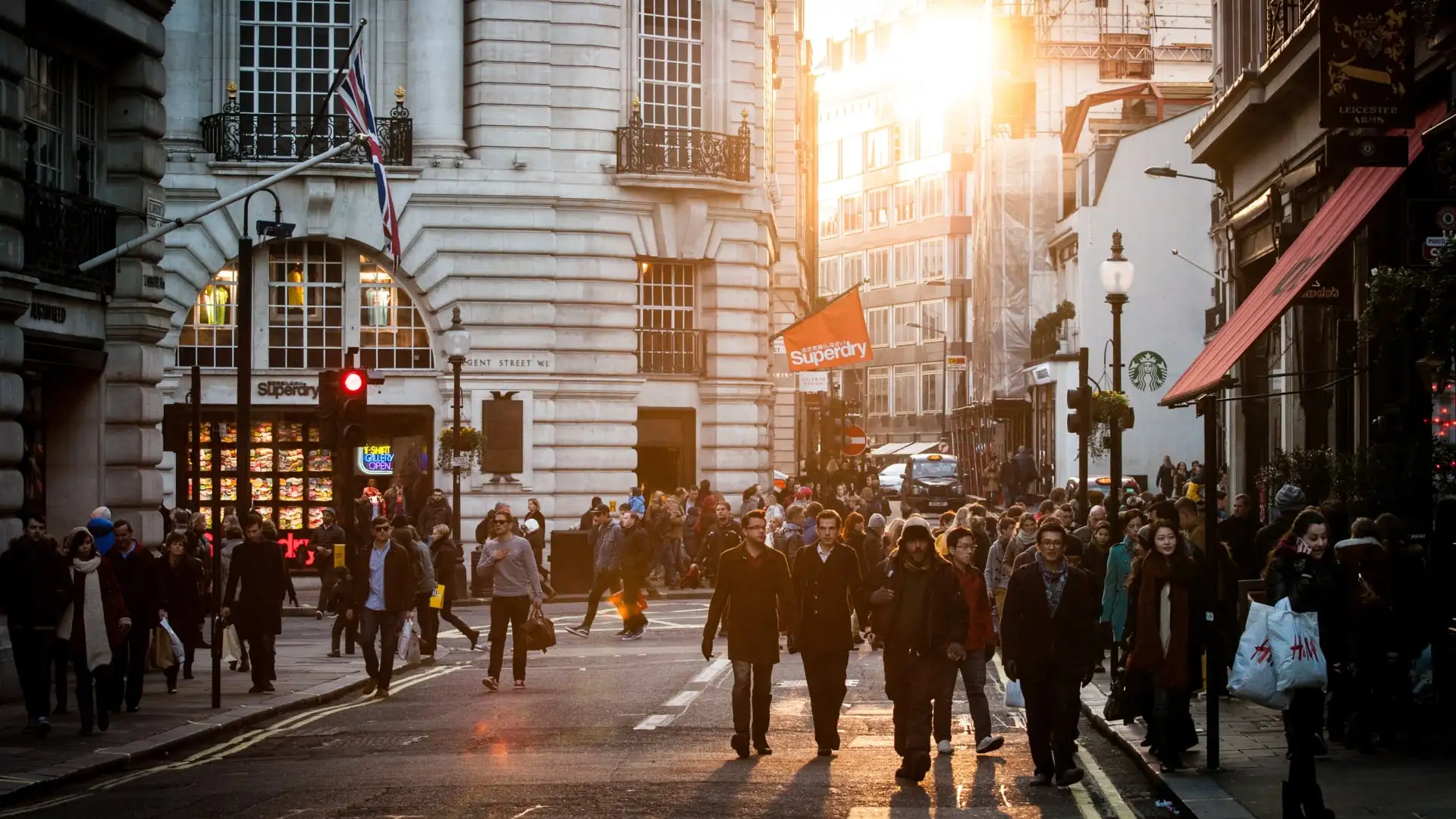

Photograph: Getty Images
Just like Dallas hair salons and Colorado coffee shops, a few professional sports leagues are reopening, albeit with a twist. On Saturday, Germany’s Bundesliga soccer league kicks off in front of empty stadiums, while US-based Major League Soccer proposed this week to move all 26 teams to Orlando in June to play at a Disney World/ESPN sports complex that will be both empty and televised.

By Eve Sneider
German teams have been subjected to intensive coronavirus testing in the run up to this weekend’s kickoff, and as a precaution, high fives, group hugs, and post-goal celebrations are verboten. But will players guard each other as closely? Will referees stand as close to watch the action or deliver verbal warnings to players who break the rules?
“The situation is very strange and completely new for everyone involved,” says Alex Feuerherdt, a Cologne-based sports journalist, referee trainer, coach, and host of the podcast Rules of the Game. “I can imagine that both players and referees are insecure and inhibited, not only because there are no spectators, but also because of the hygiene rules. Maybe everyone will be more restrained.”
Never before have sports teams played an entire season without fans, and that will make this summer a fascinating time for the people who study sports and how psychology influences athletic performance. In the few instances in which fans were excluded from the stadiums in the past, researchers found fewer penalties issued by referees and less of an advantage for the home team. Over the years, researchers have documented a home-field advantage in basketball, football, and baseball. These results are due mainly to the fact that away teams have to deal with the fatigue of travel, the uncertainties of playing on an unfamiliar field and using a different locker room, and also the effects of crowd noise on referees, which tends to be associated with more fouls against visiting teams.
Mikel Priks, an economics professor at Stockholm University, reviewed 21 Italian soccer games that were played before empty seats back in 2007. (Italian soccer officials had banned fans from the games after violence erupted in Sicily between supporters of competing teams, resulting in the death of a police officer.) Pitkin found that without the boos, the refs got a bit of a breather. They issued equal numbers of fouls to both teams, according to his study published in the journal Economics Letters. “It was a natural experiment,” says Pitkin. “What we found was that there was an effect on the number of fouls, yellow cards, and red cards, and we concluded that referees were affected, rather than the players.”
But when fans are on the sidelines, it’s harder for refs to stay neutral. Another study of English and German soccer league games played in full stadiums found that referees have a subconscious bias toward the home team. Robert Simmons and colleagues at the University of Lancaster dissected the effects of the home-field advantage on referees in the English Premier League and the German Bundesliga over six seasons from 2001 to 2007. In a study published in the Journal of the Royal Statistical Society, they found that the refs gave more yellow and red cards (issued to players for committing either serious or flagrant fouls) to visiting teams. This result held true even when the researchers accounted for differences in the quality of the teams—that is, whether they were an underdog or a heavily-favored squad. In Germany, where some stadiums have running tracks that separate the fans from the soccer field, Simmons also found that referees issued fewer fouls to visiting teams.








